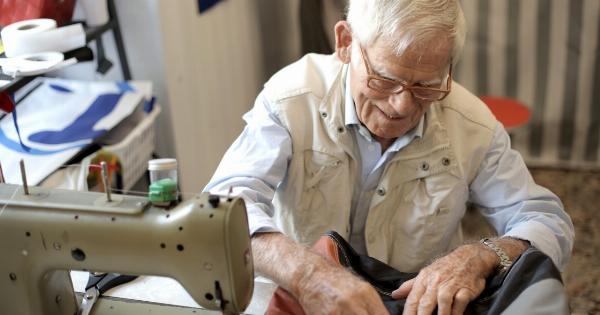Premature infants are born before the completion of the full term of pregnancy, which is typically around 37 to 40 weeks. These tiny babies often require specialized care and support in a Neonatal Intensive Care Unit (NICU) to survive and thrive.
In this article, we will explore the length of time premature infants may spend in the NICU before they can survive and transition to a less intensive level of care.
Factors Affecting the Length of NICU Stay
The duration of a premature baby’s stay in the NICU can vary depending on numerous factors. Here are some key factors that influence the length of time:.
Gestational Age and Birth Weight
The gestational age and birth weight of a premature baby play a crucial role in determining their readiness to leave the NICU.
Premature infants born closer to the full term or with higher birth weights tend to have a shorter NICU stay compared to those born extremely prematurely or with very low birth weights. Generally, the more premature and underweight the baby is, the longer their required stay in the NICU.
Developmental Milestones
Premature infants must meet certain developmental milestones before they can be discharged from the NICU.
These milestones include gaining weight steadily, showing stable body temperature, breathing independently, and being able to coordinate sucking, swallowing, and breathing while feeding. Each baby progresses at their own pace, so the timeframe for achieving these milestones can vary.
Health Complications
Some premature babies may experience health complications that prolong their stay in the NICU.
These complications can include respiratory distress syndrome, apnea (brief pauses in breathing), jaundice, infections, or complications related to their heart, brain, or digestive system. The severity and duration of these complications impact the length of time spent in the NICU.
Feeding Challenges
Premature babies often face feeding challenges due to their immature digestive systems. They may require specialized feeding techniques, such as tube feedings or intravenous nutrition, until they can effectively breastfeed or bottle-feed.
The ability to feed adequately is an important factor in determining when a premature baby can be discharged from the NICU.
Social Factors
Social factors, such as the availability of support systems and resources for parents and caregivers, can also influence the length of a premature infant’s stay in the NICU.
In some cases, parents may need to learn specific care techniques or obtain necessary equipment before their baby can be discharged. Social factors, although not directly related to the baby’s health, can contribute to the overall timeline of their NICU journey.
Individualized Care Plans
Every premature baby in the NICU receives an individualized care plan designed based on their specific needs and circumstances. This plan outlines the required medical interventions, therapies, and monitoring tailored to each infant’s condition.
The duration of the NICU stay depends on how well the baby responds to the care plan and achieves the necessary milestones for transition to less intensive care.
Expected Length of NICU Stay
It is challenging to provide an exact duration for a premature baby’s NICU stay as it varies greatly depending on the factors mentioned earlier. However, here is a rough estimate based on the gestational age at birth:.
Extremely Premature (Less than 28 weeks)
Extremely premature babies usually require an extended stay in the NICU. Their length of stay may range from a few months to half a year or more, depending on various factors.
These fragile infants often require extensive support and treatment to overcome their underdeveloped organs and be strong enough to survive outside the NICU.
Very Premature (28 to 32 weeks)
Babies born between 28 to 32 weeks of gestation generally have a NICU stay of several weeks to a couple of months. They often require respiratory support, assistance with feeding, and carefully monitored developmental progress.
As they gain weight, mature, and achieve developmental milestones, their chances of survival and readiness for discharge improve.
Moderate to Late Preterm (32 to 37 weeks)
Preterm babies born between 32 to 37 weeks tend to have a comparatively shorter stay in the NICU, typically ranging from a few days to a few weeks.
They may require less intensive interventions and have fewer complications compared to extremely or very premature infants. However, the healthcare team still closely monitors their feeding, growth, and overall progress before considering them ready for discharge.
Discharge Planning and Home Care
Once a premature baby has progressed and is deemed ready for discharge from the NICU, a comprehensive discharge plan is put into action.
This plan involves coordinating with healthcare providers, specialists if needed, and parents to ensure a smooth transition to the baby’s home environment. It may include instructions for follow-up appointments, specialized care techniques, equipment needs, and contact information for support services if required.
Importance of Developmental Support
After leaving the NICU, premature infants continue to require developmental support and close monitoring. The first few years are critical for catching up on growth and developmental milestones.
Early intervention programs, such as physical, occupational, and speech therapies, play an essential role in supporting the long-term well-being and development of these babies.
Conclusion
The length of time premature infants spend in the NICU before they can survive varies based on factors such as gestational age, birth weight, developmental milestones, health complications, feeding challenges, social factors, and individualized care plans. Extremely premature babies may stay in the NICU for several months, while moderately preterm babies may have shorter stays of a few days to a few weeks.
Each baby’s journey is unique, and the duration of their stay is tailored to their specific needs and progress. It is crucial to provide them with the necessary care and support until they are ready to transition to less intensive levels of care.





























